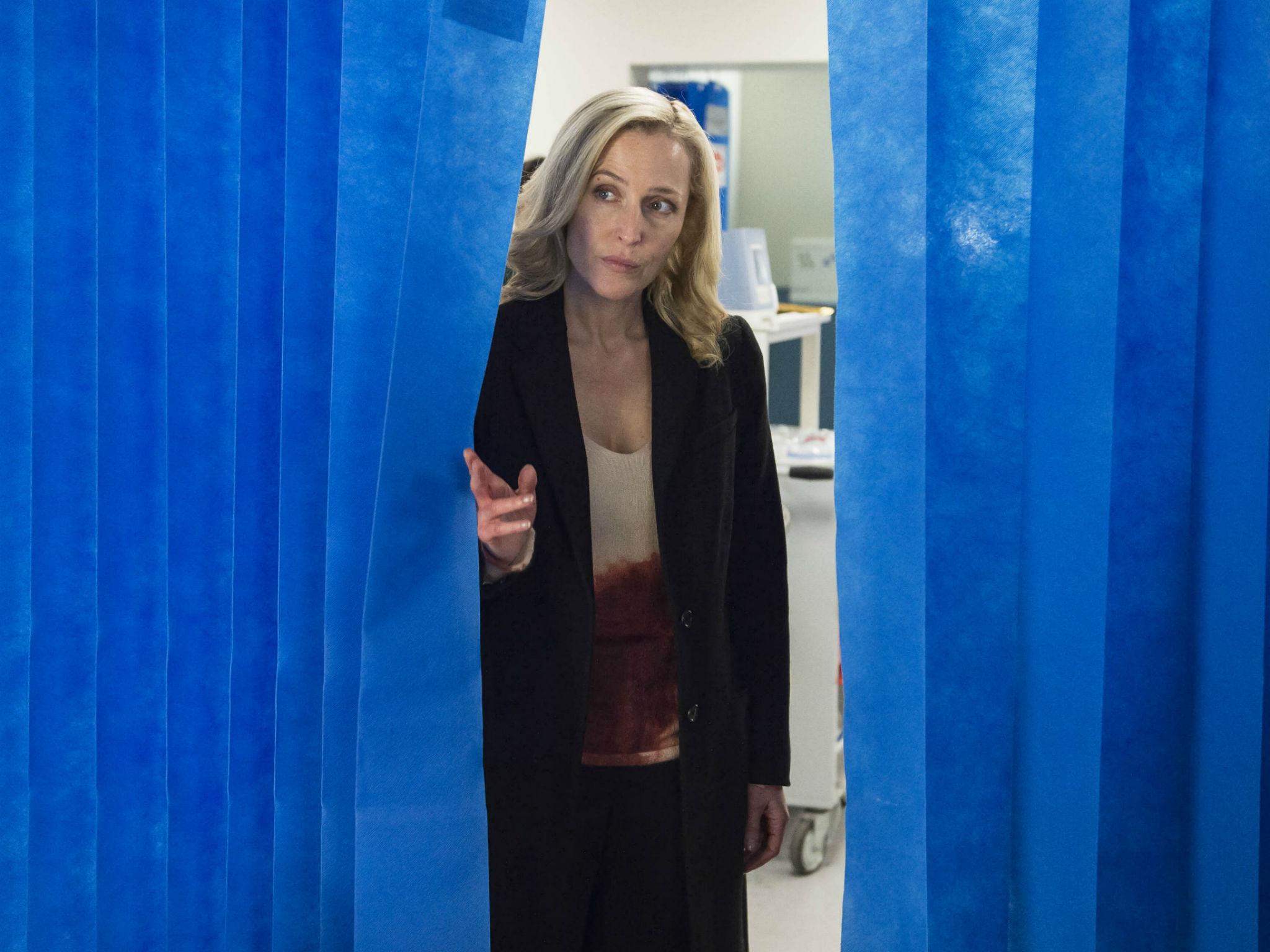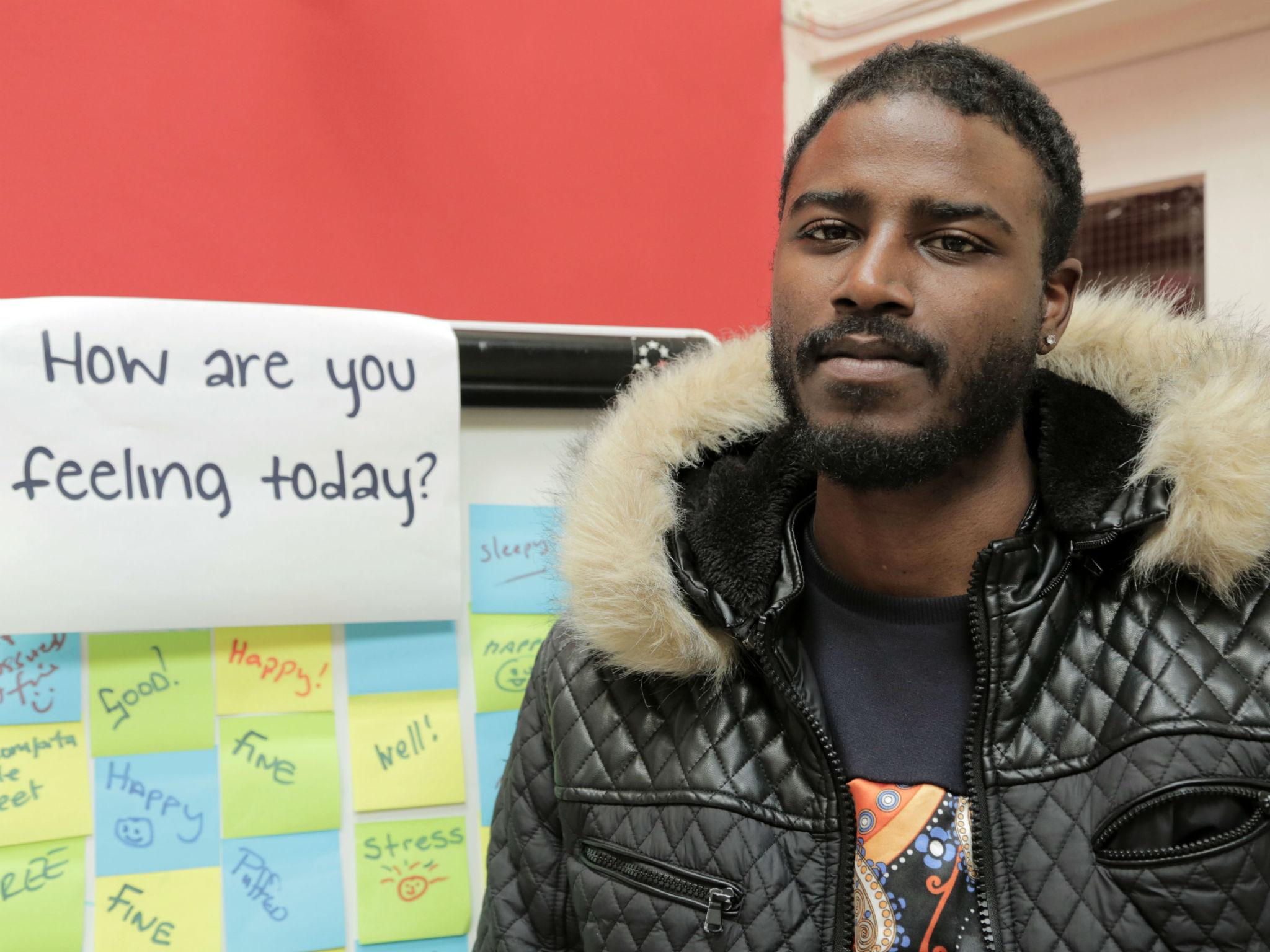TV preview: The Fall season 3; Being Black, Going Crazy?
Sean O’Grady tells us what to expect from his pick of next week’s telly offerings

At a time of change – Brexit, Bake-Off, break-ups in the Labour Party – you may be relieved to see The Fall is back, a reassuringly reliable, if sometimes eccentric, bit of evening entertainment. If you’re at all familiar with it, you will know that nothing much happens for quite considerable longeurs in an atmosphere of tension, tears and darkness, as you might expect for something about a serial killer in Northern Ireland. The Sweeney it ain’t, but it does still succeed in getting the pulse racing.
This first instalment of six in this third series sticks with all the assets that have made it such an enigmatic sort of success. Prime among them is Gillian Anderson, as Detective Superintendent Stella Gibson, equipped with an impressively cut-glass English accent and an attractive line in cool, controlled, almost calculated anguish, appropriate in a drama run at such a glacial pace. And we all like an ice-cold Stella from time to time, don’t we?
Striding around corridors and displaying rare vulnerability made more vivid by her (usually) unrelenting grey professionalism, Gibson’s main task is trying to bring the Belfast Strangler, aka Paul Spector (Jamie Dornan) to justice. Already in police custody, that’s trickier than it sounds, when you’re dealing with such a calculating, intelligent, manipulative personality, as such real-life killers tend to be. Her other priority is trying to maintain a risky relationship with her young lover, a police colleague. Hence the vulnerability. Only occasionally, with her white shirts and long black coats, are you put in mind of FBI Special Agent Dana Scully, and not in a bad way.
I ought to warn you that most of next week’s episode is set in the A&E department of a Belfast hospital, a sort of Nordic noir version of Holby City. There is an awful lot of blood and giblets swirling around the emergency room, and so much medical jargon – systolic this, radial that, split spleen the other – that it really needs subtitles. If you’re inclined to put in the time and the emotional investment, and you can keep your supper down, The Fall is an extremely rewarding, even compelling watch.
In Being Black, Going Crazy?, the presenter loses no time in introducing himself to us thus: “I’m Keith Dube, also known as Mr Exposed. I’m a blogger with a massive following on social media, and I host a breakfast show on one of London’s newest radio stations.” At that point, mere seconds in, you may wonder, as I did, whether this was a People Just Do Nothing-style parody, or if Mr Dube is himself suffering from some mild form of disorder. Or at least a bad case of everyday narcissism.
Get past that, though, and he is an engaging sort of presenter, who sets out to get somewhere near the truth about one of the most distressing, and most ignored, areas of racial inequality – the fact you are 17 times more likely to be diagnosed with a serious mental health condition if you are a black man in Britain, and six times more likely than a white man to be an in-patient in a mental health unit.

Worse, even, black patients seem to be fobbed off with heavy doses of the chemical cosh, and generally treated less humanely then their fellow citizens. Mr Dube/Exposed doesn’t, in the end, come up with definitive answers – it wouldn’t be fair to expect a single TV show to do so – but he does talk to people affected, and points to the challenging environment many black families still find themselves in as a fundamental cause – poor housing, worse job opportunities, educational disadvantage, drugs. He also suggests factors more special to the black community – the attitude of some religious leaders, who prefer prayer to pills, and a greater stigma attached to mental illness than among other groups. To borrow a slogan, this is a small step in the battle to make sure we realise that black minds matter.
The Fall: 9pm, Thursday 29 September, BBC2; Being Black, Going Crazy? Tuesday 27 September, BBC3
Join our commenting forum
Join thought-provoking conversations, follow other Independent readers and see their replies
Comments
Bookmark popover
Removed from bookmarks